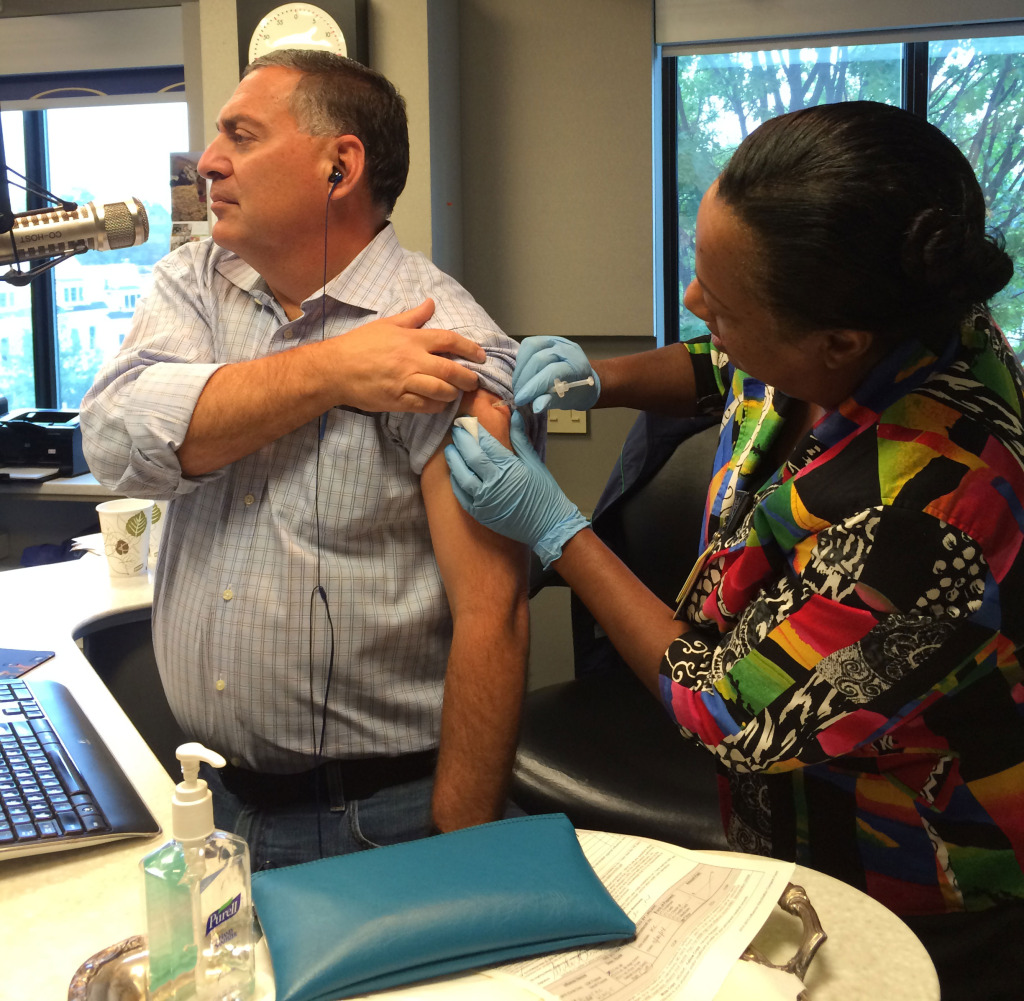
WASHINGTON — Flu is widespread throughout the country, and the Centers for Disease Control and Prevention says this year’s outbreak has now officially reached epidemic proportions.
In the Washington area flu season hit early and hard. It usually peaks in January or February, but local hospitals report many cases in December.
“We have seen a lot of people enter our emergency department with flu-like illness,” says Dr. Mark Abbruzzese, an infectious disease specialist at Sibley Hospital in D.C.
He says while ER visits are up actual hospitalizations are down — a possible indication that the illness, while widespread, is not unusually severe locally.
Another trait of the current flu season is the disease is not appearing in isolation. Abbruzzese says “Not only are we seeing a spike in influenza rates, but we are seeing a spike in other viral illnesses rates.”
All of these viruses are passed from person-to-person so it is not altogether surprising to see an increase at the tail end of the holiday season, when a lot of people have been in close contact with others when traveling, at the malls, or at pageants and parties.
Further complicating the situation — and creating additional headaches for doctors and patients — is the fact the most common flu strain this year has mutated a bit. That means the vaccine for this flu season is not as effective as in the past, and many people who got vaccinated are still getting sick.
Abbruzzese says putting together the annual flu vaccine is not a 100 percent science, since epidemiologists have to predict the dominant strains up to a year in advance. But he says that should not discourage anyone from getting vaccinated.
“It might not prevent the disease altogether, but we are certainly hoping for perhaps a less severe strain of flu or less severe symptoms in the patient population,” he says.
He urges anyone who might have the flu to seek medical attention. Those who have underlying conditions — such as asthma — need to be checked out as soon as possible at their doctor’s office, a clinic, or a hospital ER. Others who are generally healthy might still want to make the trip, especially since there are drugs that can lessen the severity of the flu if taken within the first 48 hours after the first symptoms appear.
The most popular drug — Tamiflu — is in limited supply in some neighborhoods, and Abbruzzese admits that some of his patients have had to call a couple different pharmacies to find it. But he says a brief search usually turns up a supply.
Hospitals are keeping a close watch on all these trends and it is not unusual for them to impose visitation restrictions during the height of a flu epidemic. Abbruzzese says the tipping point comes when patients who were admitted without signs of flu start coming down with the disease.
He says no one who is ill should be in public places where the virus is easily spread. “We are the vectors, we are the reservoirs, we spread disease to others,” he emphasizes.
Abbruzzese says it is not too late to get a flu shot, and he stresses that simple hygiene — such as handwashing, and not sharing soda cans and cups — can help prevent the flu from being passed to our friends, families and neighbors.
Follow @WTOP on Twitter and WTOP on Facebook.







